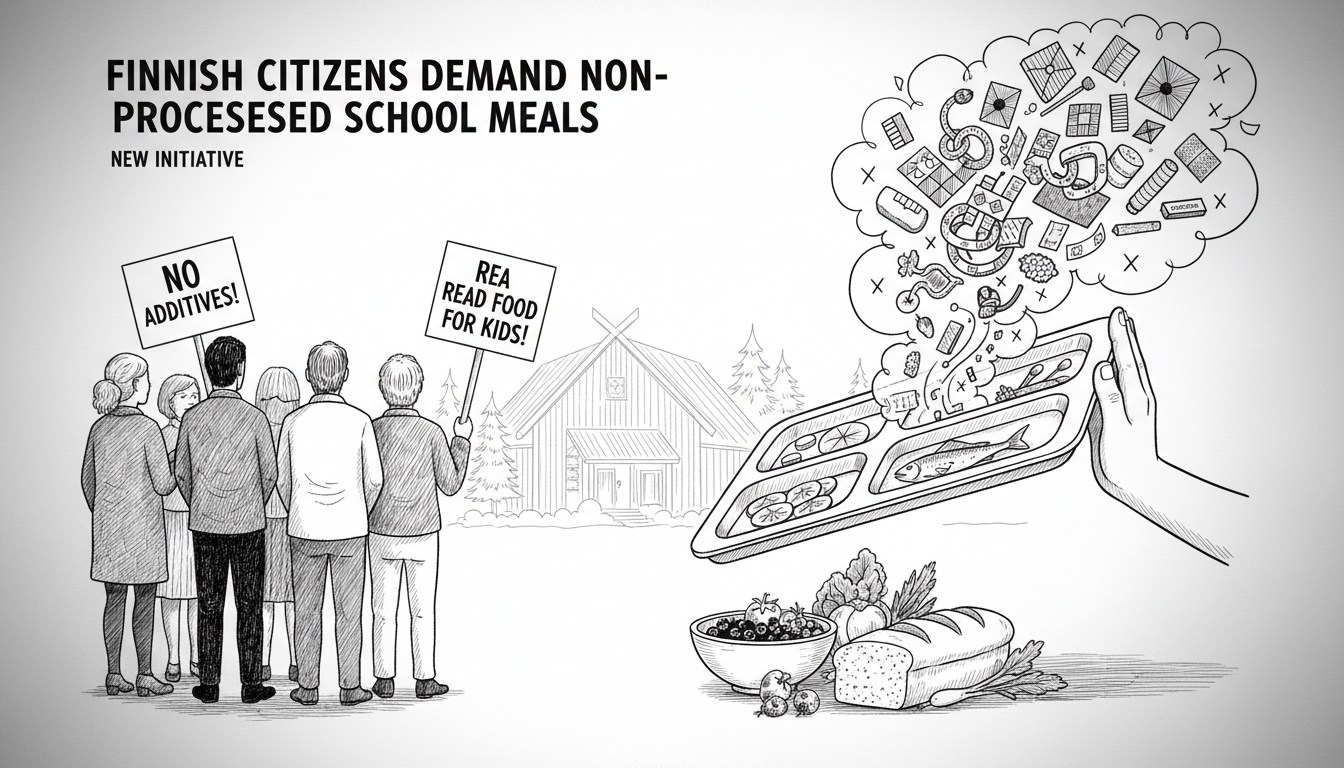A new citizens' initiative demands the removal of ultra-processed foods from Finnish schools and daycare centers. The campaign launched in early November seeks fundamental changes to children's meal programs nationwide. The Right Food Association leads this effort with a clear mission to transform Finnish food culture. They want school meals without additives and with better nutritional value.
Finnish schools serve approximately 800,000 meals daily to students across the country. These meals follow national nutritional guidelines established by the Finnish National Agency for Education. The current system provides free lunches for all students from primary through secondary education. This longstanding policy dates back to post-war Finland when the country implemented comprehensive social welfare programs.
Ultra-processed foods contain industrial ingredients not typically used in home cooking. They often include preservatives, artificial colors, and flavor enhancers. Research links these foods to various health concerns in children. Studies show connections to obesity, digestive issues, and long-term eating habits.
The Finnish education system has historically prioritized student wellbeing through meal programs. Many parents and educators now question whether current practices align with modern nutritional science. The debate touches on food preparation methods, ingredient sourcing, and budget constraints facing municipalities.
School kitchens across Finland face practical challenges in meal preparation. Limited facilities and staffing affect what schools can realistically provide. Urban schools often have different capabilities compared to rural institutions. The cost difference between processed and fresh ingredients creates additional complications for municipal budgets.
This initiative reflects broader European trends toward cleaner food labeling. Several EU countries have implemented stricter school meal standards in recent years. France and Italy have particularly strong traditions of culinary education in schools. The European Commission continues to update food safety regulations that affect member states.
The citizens' initiative needs 50,000 signatures to proceed to parliamentary consideration. Finnish law allows citizens to propose legislation through this democratic mechanism. Successful initiatives often spark meaningful political discussions in the Eduskunta. Previous food-related initiatives have influenced national policy decisions.
Education ministry officials acknowledge growing public interest in school meal quality. They note the challenge of balancing nutritional ideals with practical realities. Municipal authorities responsible for implementing meal programs express similar concerns. Budget limitations remain a constant factor in these discussions.
Parents across Finland express mixed reactions to the current school meal system. Some appreciate the convenience and cost savings of the existing program. Others want more transparency about ingredients and preparation methods. The conversation extends beyond nutrition to include environmental and ethical considerations.
Food industry representatives highlight their compliance with current regulations. They emphasize the safety and affordability of products supplied to schools. Manufacturers note their ongoing efforts to improve nutritional profiles while maintaining shelf stability.
The timing of this initiative coincides with broader European food policy discussions. EU member states continue debating food labeling requirements and nutritional standards. These international developments often influence national policy directions in Finland.
What practical changes would this initiative require if implemented successfully? School kitchens would need equipment upgrades and staff training. Municipal budgets would face increased food costs. Supply chains would require restructuring to provide fresh ingredients consistently.
The debate continues as signatures accumulate for parliamentary consideration. The outcome could reshape Finnish children's daily eating experiences for generations.

